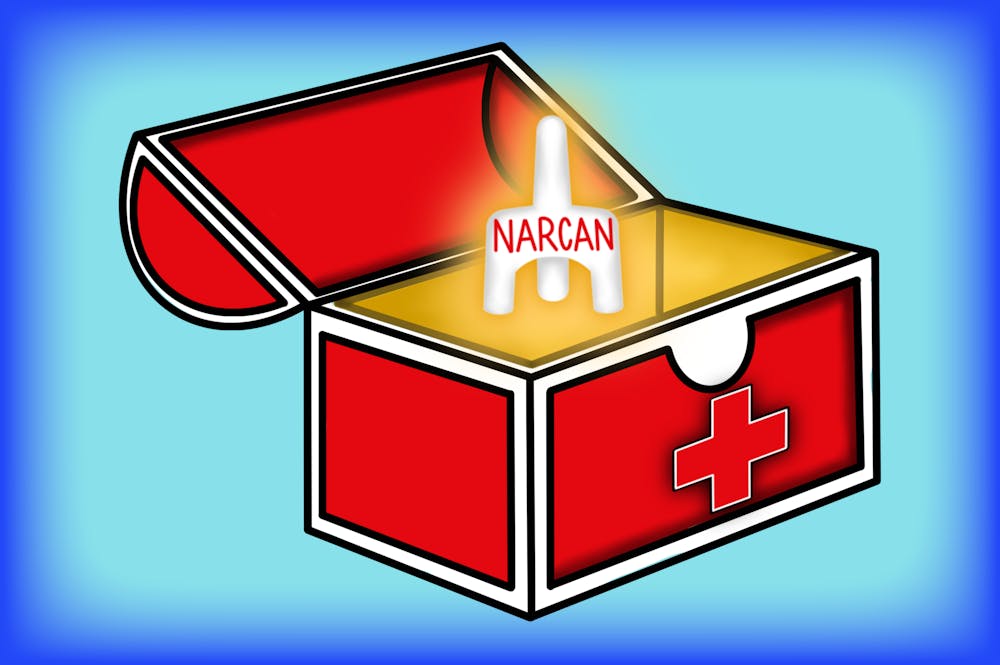In a perfect world, recovering from a drug addiction is just as easy as falling into one, and immediate, complete sobriety would be an option for everyone. We like to believe that if addicts had enough grit, they could rid themselves of their illness and never look back, but reality is more complex.
There has also been a sense of morality and worth attached to sobriety, fueling quiet shame toward people opting not to quit cold turkey or to never fully quit at all. Often, a more empathetic, destigmatized harm reduction-based approach is more suitable to a person’s needs and more productive than imposing unrealistic standards for recovery.
Harm reduction focuses on encouraging safer choices while people continue to use, aiming to prevent overdose and the spread of diseases. This can look like increased accessibility to Naloxone, which interrupts opioid overdoses to buy time to seek medical attention; fentanyl test strips to prevent overdose in the first place; clean syringes to protect people from disease or infection; and empathetic counseling that meets people where they are with sobriety.
This may all sound like it enables drug use, and in a way, it does. However, it does not promote it. The goal is reduction. Sometimes when I explain this concept, people scoff, stuck on the idea that the only way to lead a fulfilling life is to do it sober.
These kinds of completionist attitudes about substance use make me question our motives and priorities when it comes to fostering recovery. It seems to boil down to our personal comfort, rather than the addict’s. The stigma around addiction makes us flinch at the thought of perpetuating drug use in safer ways. People want it out of sight and out of mind.
What is missing in this take is the understanding that recovery looks different for everyone, and even people in active addiction deserve to live as healthy as possible. Harm reduction is a step toward complete sobriety; you cannot get someone sober if they have already died from an overdose. This approach aims to keep people alive, often opening up more opportunities for a safe and sober life.
Additionally, higher-quality care for rehabilitation is often unattainable for people in financially precarious situations. Rehab facilities can cost thousands of dollars, and many cannot afford to miss days or weeks worth of work to safely detox.
There are several harm reduction initiatives on campus that hand out completely free resources, like Naloxone and fentanyl test strips, helping to keep our peers safe in an accessible way. You can sometimes find the Carolina Harm Reduction Union handing out free Naloxone around the Pit and Polk Place, and UNC Campus Health and Student Stores pharmacies offer Naloxone for free, without a prescription and in a discreet, anonymous fashion.
Being familiar with these tools is especially important on a college campus. It is no secret that some people experiment with drugs in their college years. Having Naloxone on hand at a party and knowing how to administer it can save your peers’ lives. It might feel lame or ruin your outfit, but the benefits of having Naloxone with you outweigh your cramped style.




